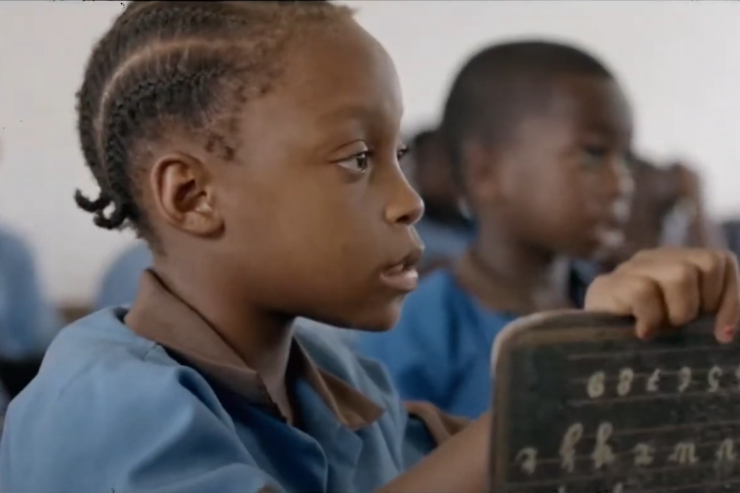Helping parents engage in their children’s education
Can encouraging parents to see their children’s learning differently reduce educational inequality?

Sharon Wolf regards inequality in education as a defining challenge of our time. She believes that the social sciences can provide important insights to help address the enormous loss of potential that inequality causes for our societies and our world. Sharon tells Annie Brookman-Byrne about her research aimed at improving children’s educational outcomes by supporting parents and teachers.
Annie Brookman-Byrne: What inspires you to research educational inequality? What questions are you asking?
Sharon Wolf: What happens during childhood reverberates throughout one’s life. Countless young children around the world face adversities that threaten their lifelong developmental potential. But responsive and nurturing relationships can prevent or even reverse the damaging effects of early adversity, and home and school settings provide a key platform for children to build such relationships.
“Responsive and nurturing relationships can prevent or even reverse the damaging effects of early adversity.”
I am inspired by how we can take what we know about supporting children and put it into practice on a large scale. How can we help parents provide responsive, nurturing care to their children in the face of all the stressors and challenges in their lives? How can we help teachers implement developmentally informed best practices to meet all children where they are? And can we do this on a large scale to reach thousands of children at once?
ABB: How are you trying to help caregivers and educators, and what have you learned so far?
SW: Sending information to parents is a cost-effective way to improve educational outcomes for children. It is cheap and easy to send mobile messages to very large numbers of people. We sent parents behavioral “nudges” – messages that do not convey new information, but try to change how parents feel about engaging in their children’s education.
We worked with 99 public primary schools in Côte d’Ivoire. The children were typically between the ages of 6 and 11. We randomly picked 25 schools to send text messages to parents directly, and 25 schools not to send such messages (the control group). Another 24 schools were asked to send messages to teachers instead, with the goal of increasing teacher motivation, the amount of time the class spent on task, and teacher effectiveness. The final 25 schools sent messages to both parents and teachers.
Our research partners on the ground, Innovations for Poverty Action, conducted surveys with parents and children and administered standardized French and math tests to children at the beginning and end of the school year.
We found that nudges to parents improved student learning outcomes, although the benefits were observed mostly in lower-performing students and boys. This is consistent with the idea that text-message nudges can decrease inequalities, since girls typically perform better than boys in both primary and secondary education. But it is disappointing that there were no detectable benefits for girls, who tend to drop out of school at higher rates than boys in Côte d’Ivoire. We believe that social expectations lead parents to be less willing to participate in their daughters’ education, given society’s lower expectations for girls’ educational attainment relative to expectations for boys.
We were surprised that the intervention seemed to increase child labor, as reported by both girls and boys, especially when it came to helping with household chores. Since educational outcomes improved with children’s engagement in these activities, this suggests an intricate relationship between children’s time use, parental engagement, and learning outcomes. Measuring child labor in cocoa fields, an important driver of student dropouts in this setting, is plagued by reporting biases – parent and child reports differ, especially in areas commonly targeted by campaigns aimed at discouraging child labor. This makes it hard to know whether our results about child labor are accurate.
Interestingly, nudges to teachers were not effective, whether they were sent out separately or in combination with nudges to parents. If anything, targeting teachers may even have backfired in this context.
ABB: What needs to happen next in this research area?
SW: Text-message nudges to parents can boost children’s learning outcomes and reduce educational inequalities, even in low-income rural settings – but not for everyone, and the impacts are generally small. We need to pay careful attention to how parents interpret messages and how they translate those messages into practice for different groups of children.
“Text-message nudges to parents can boost children’s learning outcomes and reduce educational inequalities.”
Further research is needed to understand how nudges could benefit a broader range of students, and girls in particular. We also need additional interventions that might magnify their effects, by motivating teachers and reducing the forms of child labor that take children out of school beyond primary education.
Importantly, the impacts on learning are small, and insufficient to truly address the learning crisis. To increase effects on learning, programs such as this one will undoubtedly need to be complemented by teacher professional development to translate into meaningful gains in children’s learning.
ABB: What else would you like to explore?
SW: A lot of parenting programs are designed to encourage parents to do certain things without addressing the economic and social constraints they face. They simply ask parents to engage more with their kids or to talk more to them, failing to take into account that parents are often not at home, in many cases because they’re working. I am excited to see whether there will be changes in parenting if we actually let people do what they feel is best, but also try to address those constraints, such as poverty. And when school quality improves, do parents recognize that? If we address these more structural issues, without talking to parents about education, does their behavior change? And how do the results compare with the results when we simply try to change parenting behaviors without addressing the constraints parents face? One idea that I’d like to explore is taking a more systemic approach—targeting the inequalities and challenges that put so much pressure on families—rather than just working at the family level.
Footnotes
Sharon Wolf contributed to a special collection on understanding and addressing inequality in education in the journal npj Science of Learning. This interview is part of a series dedicated to sharing practical takeaways and personal insights from authors.
The interview has been edited for clarity.


